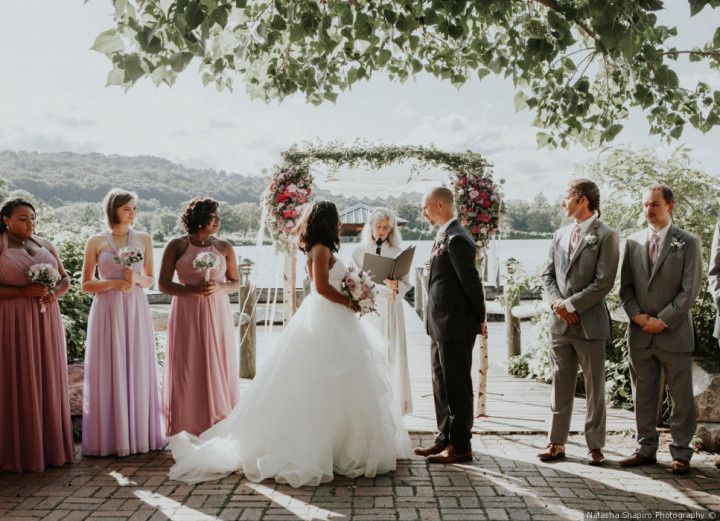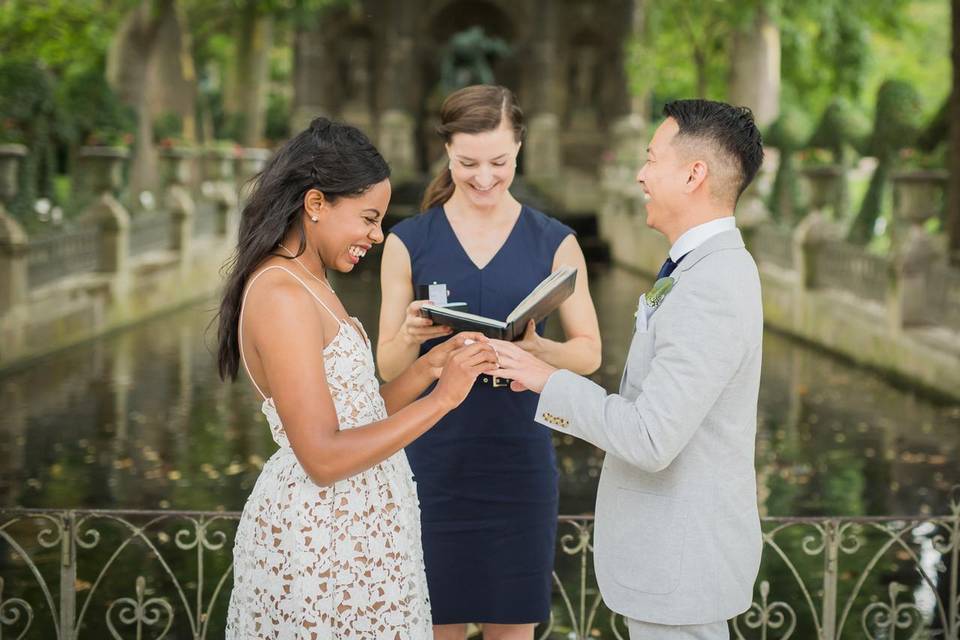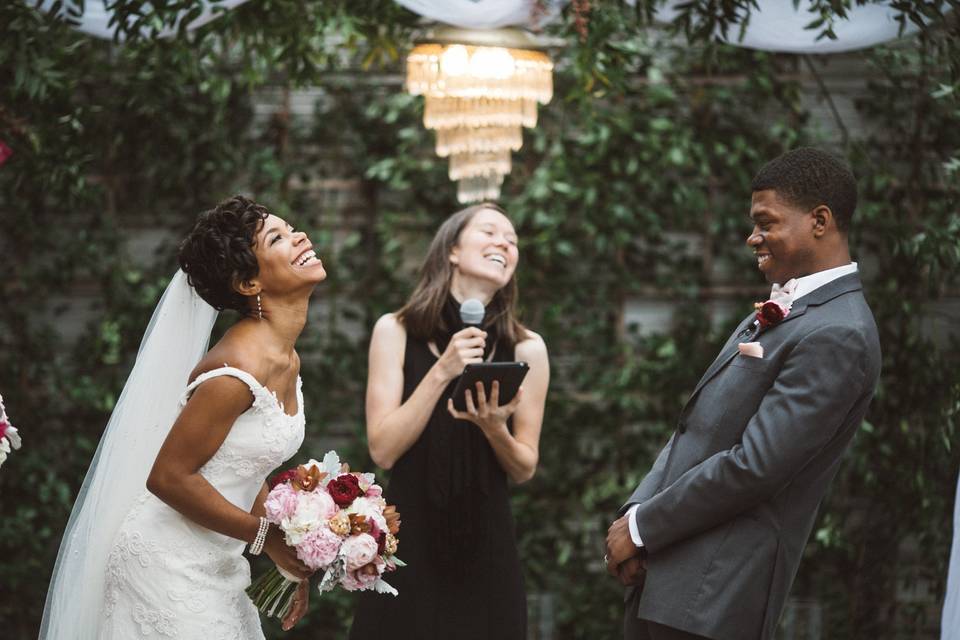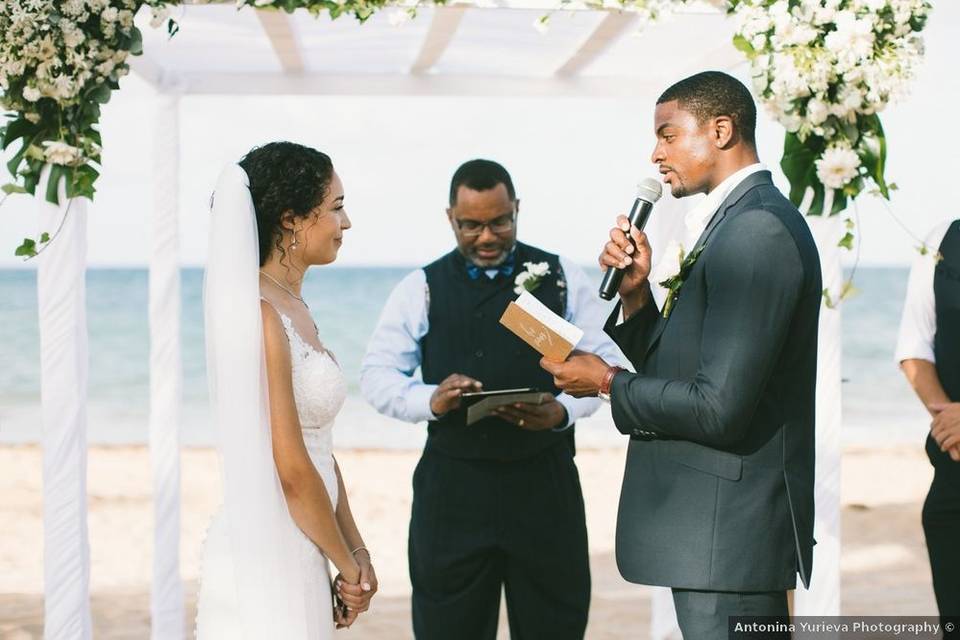Why a Wedding Officiant Costs THAT Much
There's a lot more that goes into being a wedding officiant than just showing up — trust us. Here's the breakdown explaining what exactly goes into a wedding officiant's cost.
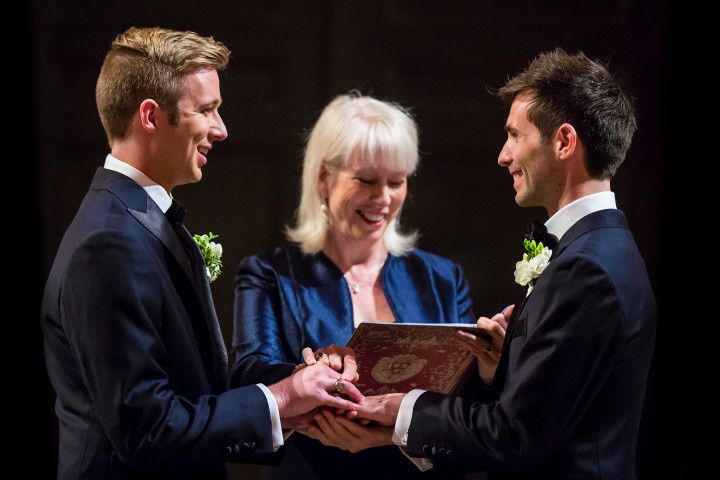

Photo: Rhinehart Photography
Wedding officiants are experts in crafting a beautiful, personal ceremony for you and your spouse-to-be. And yup, that does cost money. But, especially if you’re having a short ceremony from a time perspective, you might be wondering why officiants cost what they do. Well, turns out that there’s a lot more that goes into officiating a wedding than just showing up on the day of and officiating—seriously, a lot.
We talked to wedding officiants to find out what actually goes into their pricing—and here’s what we learned.
Prep Work
A professional wedding officiant is not simply showing up on the day of your wedding and winging it. Far from it. First, you’ll need to have a consultation with him or her to make sure that you’ll be able to work together. Then, your officiant will meet and work with you (either in person or sometimes via video chat) to customize and craft a ceremony that’s unique to you and your future spouse, perhaps including religious elements, any family traditions you want to incorporate, readings you love, and more. This can take quite some time—usually three to four hours of advanced preparation, which doesn’t include edits or any additional back-and-forth that may occur after the initial draft is presented. And if you’re writing your own wedding vows, your officiant will likely provide even more personal assistance. So a good portion of what you’re paying for is a true professional creating a ceremony just for you.
Travel and Event Time
This is probably the most obvious part—you are paying for your officiant’s travel, presence, and services on your actual wedding day. And usually your officiant will arrive well before your ceremony begins to set up and prepare, and stay well after—and if your wedding is running late, that’s even more time.
Business Expenses
There are lots of costs associated with running a business—and these costs aren’t just for your officiant’s benefit, but for yours, too. You probably want your officiant to reply to your phone calls and emails in a timely fashion—they need phone service and Internet to do that. And you’ll probably need copies of your ceremony script, so your officiant will need a printer, scanner, and/or copier. There’s also the billing program or software your officiant may use to ensure that you’re billed properly.
You’ll also want to make sure that your officiant is licensed to perform weddings in your state—that license costs money, too.
Rehearsal Time
Your officiant may or may not attend your rehearsal, but if so, that’s usually an additional charge. If possible, it’s a nice idea for your officiant to come to your rehearsal (especially if you don’t have a wedding planner) to make sure that everything runs smoothly on the big day.
Expertise and Education
When you hire an experienced wedding officiant, you are paying for their expertise to ensure that your wedding ceremony will run perfectly—and that you and your spouse will actually, legally be married when all is said and done. Professional wedding officiants are always looking to stay fresh and improve. With that comes education, from conferences to courses and more.
Marketing and Advertising
Officiants need to market themselves and potentially advertise in order to have couples like you find them. Whether it’s advertising on websites or in print, attending wedding shows or other events, officiants need to be able to connect with couples—and it usually costs money to do so.
Equipment
While sometimes a music or audio-visual company will provide sound equipment for your officiant to use, some officiants are able to provide this for your ceremony. It’s obviously important for your family members and friends to hear your ceremony proceedings, and sound equipment, which can include wireless microphones and speakers, do cost money to purchase and maintain.
License Handling
Without an official marriage license, you and your spouse are not actually married—and that’s a bit of a problem, right? While you and your future spouse are responsible for actually obtaining your marriage license, your officiant is the one who will ensure that it is properly filled out, signed, and returned within your state’s required time frame. The approved marriage license will then be returned to you. This is obviously a big deal, and you’ll want an experienced officiant handling it, so the handling of your marriage license is an important part of your officiant’s fee.
Special thanks to wedding officiants Rick Kaplowitz of Bay Area Ceremonies in Palo Alto, California, Bethel Nathan of Ceremonies by Bethel in Bonsall, California, Nilou Nouri of Wedding Vows by Nilou in San Francisco, California, and Elizabeth D. Turk of RomanticVows.com in Venice, Florida for their assistance with this article.

